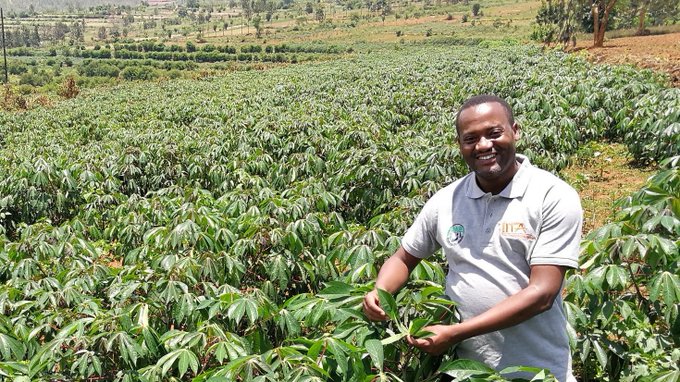|
Getting your Trinity Audio player ready…
|
Rwanda, on February 21, published in its Official Gazette a law governing biosafety, which seeks to ensure that genetically modified organisms (GMOs) are handled, transferred, and used safely in the country.
According to the purpose of the law, it establishes an adequate level of protection in the field of the safe transfer and use of living modified organisms ((LMOs) – also known as GMOs – resulting from modern biotechnology that may have an adverse effect on the conservation and sustainable use of biological diversity while taking into consideration the effect of this transfer and use on human health.
ALSO READ: How agricultural biotechnology could boost food security
The Coordinator of Roots and Tubers Program at Rwanda Agriculture and Animal Resources Development Board (RAB), Athanase Nduwumuremyi, told The New Times “the availability of the biosafety law means that Rwanda has now entered the list of countries that have what we call enabling environment in biotech.”
Nduwumuremyi is also the coordinator of Open Forum on Agricultural Biotechnology in Africa (OFAB) Rwanda chapter.
OFAB, which is a project of the African Agricultural Technology Foundation (AATF), has a mission to improve the policy environment and empower stakeholders to make informed choices on agricultural biotechnology in Africa, according to AATF.
On the African continent, there are 12 countries that have biosafety or GMO regulating laws so far – namely South Africa, Egypt, Sudan, Malawi, Mozambique, Eswatini, Nigeria, Ghana, Burkina Faso, Kenya, Ethiopia, Rwanda, according to information from OFAB.
Regarding the next step, Nduwumuremyi pointed out that there are ministerial orders or regulations that should be issued to facilitate the implementation of the new law.
For instance, he said, while the law provides for the establishment of a National Biosafety Committee for the purpose of assisting and providing expertise in reviewing applications, there should be an Order of the Prime Minister determining the composition, responsibilities and functioning of that committee – as well as its term of office.
According to the law, activities subject to permit application are those related to contained use of a GMO, its confined field trials, intentional introduction of a GMO, placing it on the market for direct use as food, feed or for processing, importing, transiting or exporting it, handling, packaging, labelling, transporting or storing it.
ALSO READ: Genetically modified potatoes could address honey crisis – scientists
Again, it is relevant ministerial orders that will also provide for forms that people fill while applying for GMOs related activities including research, and their release from confined field trials to people’s farms, Nduwumuremyi observed.
Also, Nduwumuremyi said, there will be regulations on GMO product imports and trade, pointing out that, currently, it was for instance, not easy for a person who wants to buy GMO maize from the US, but it will be easy with the new law.
Source: The New Times
